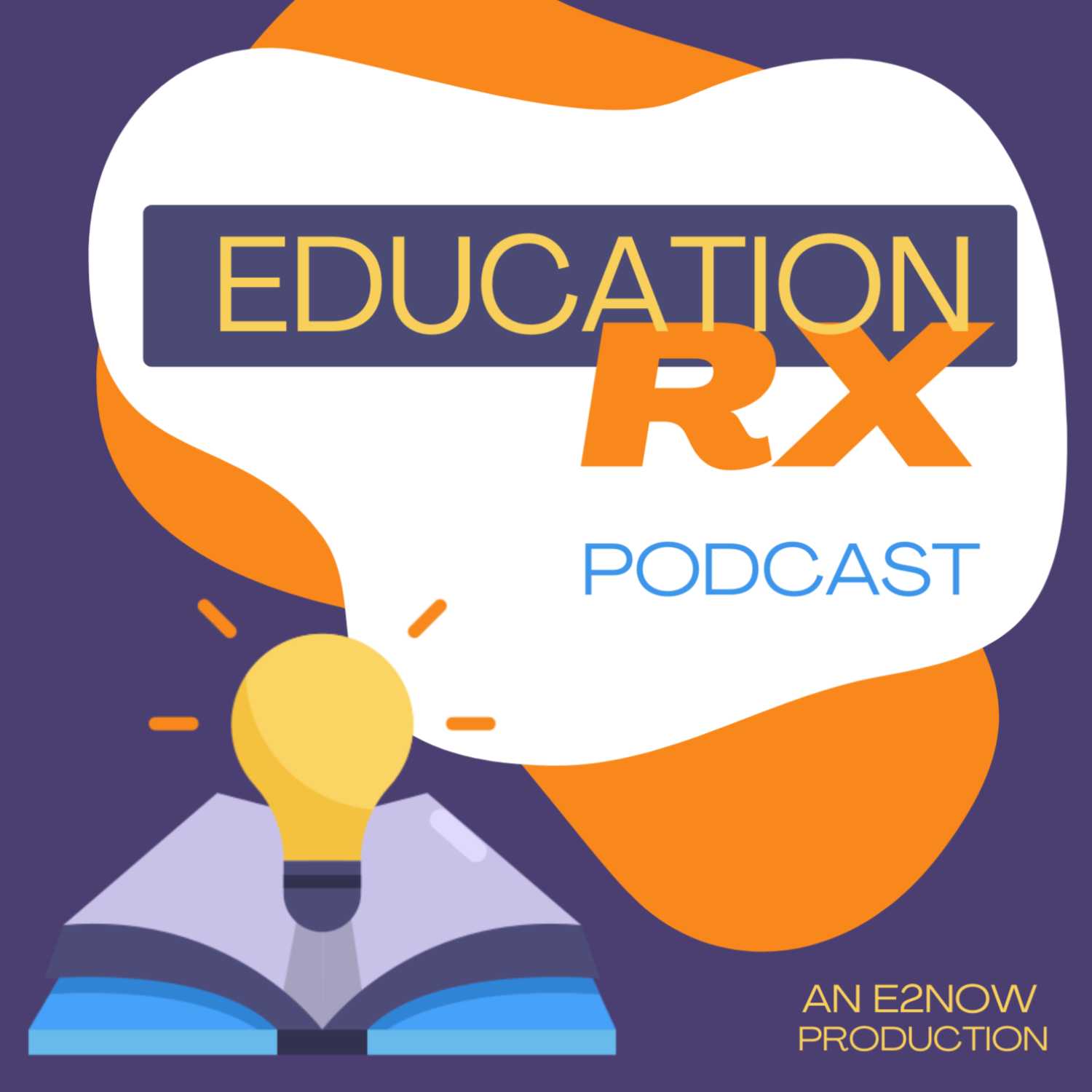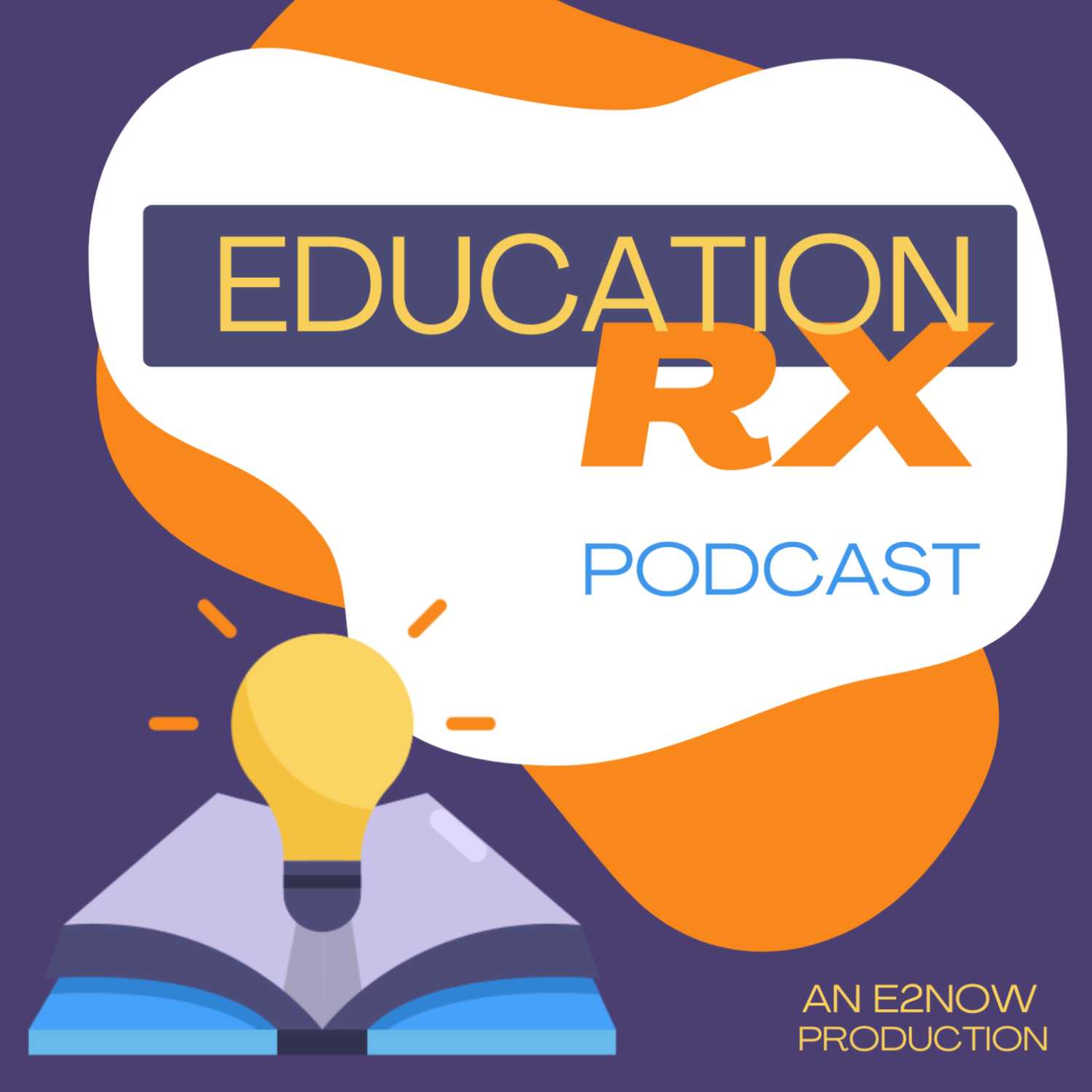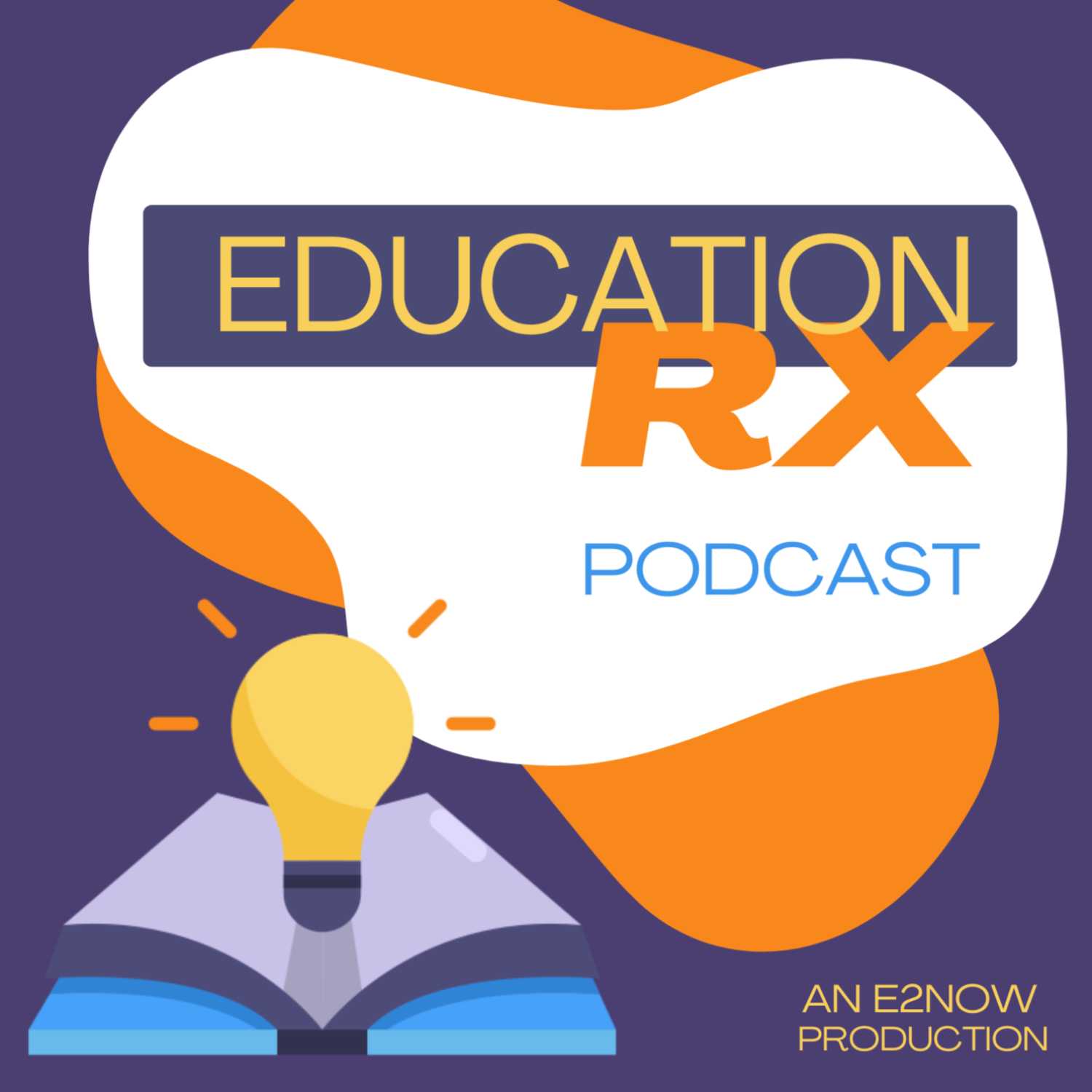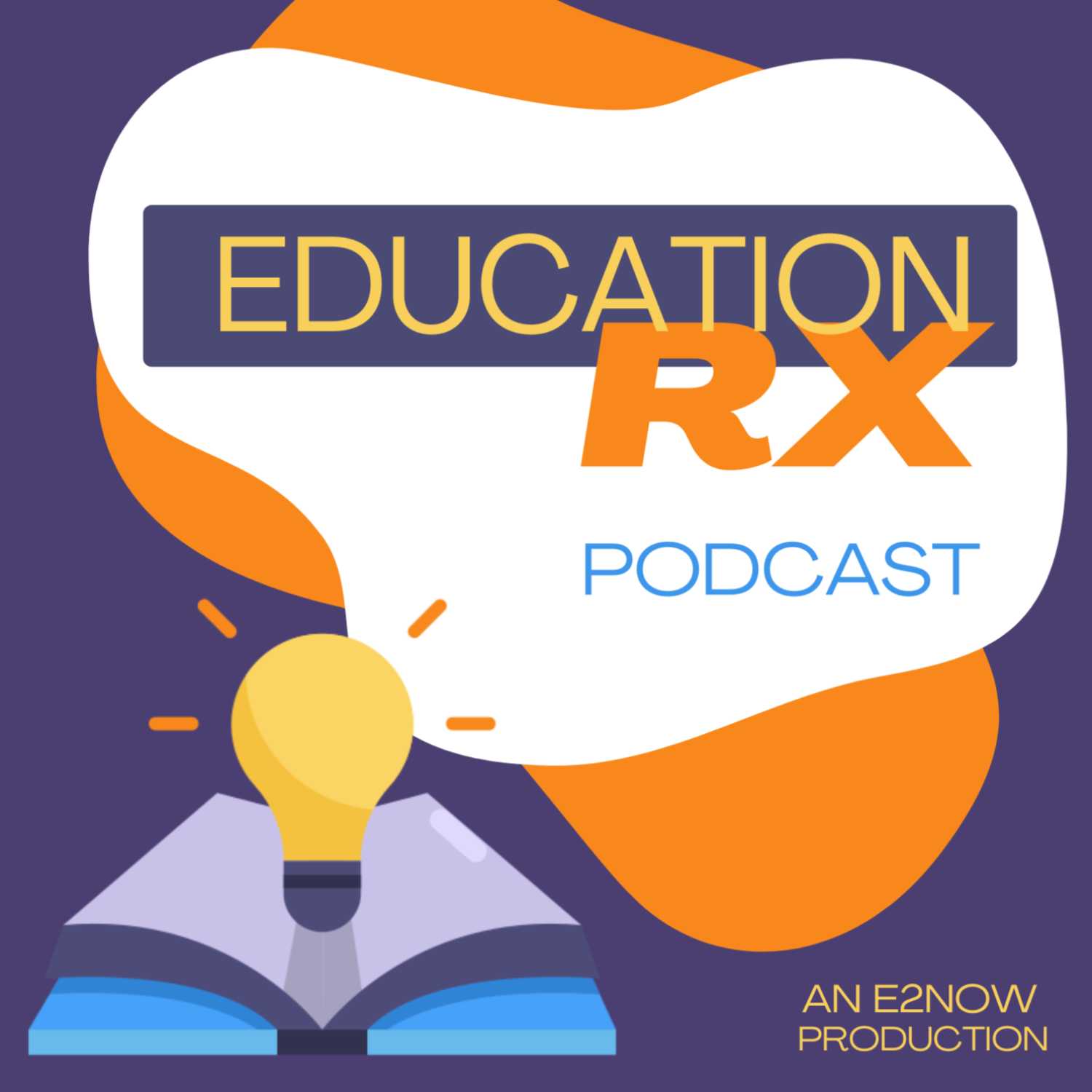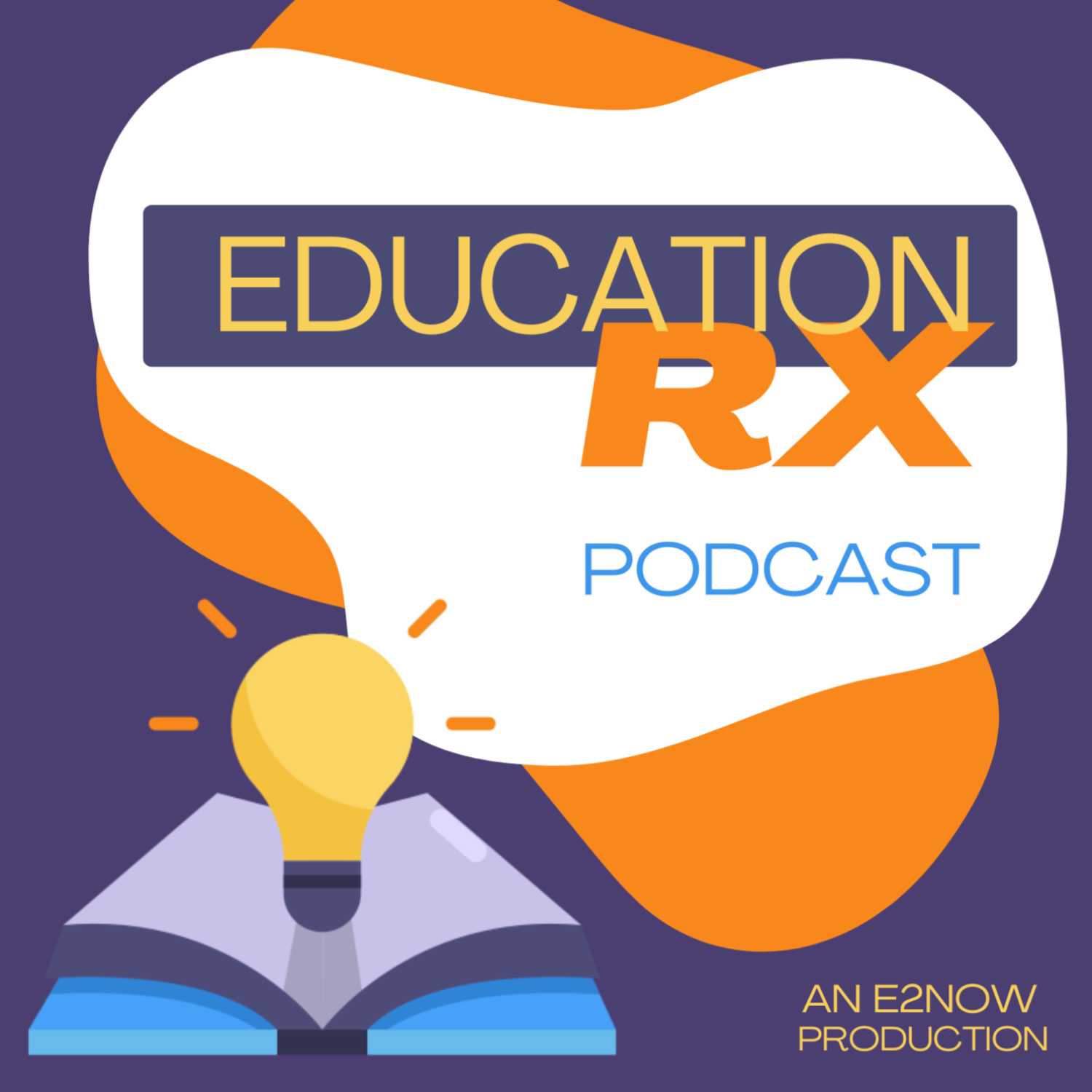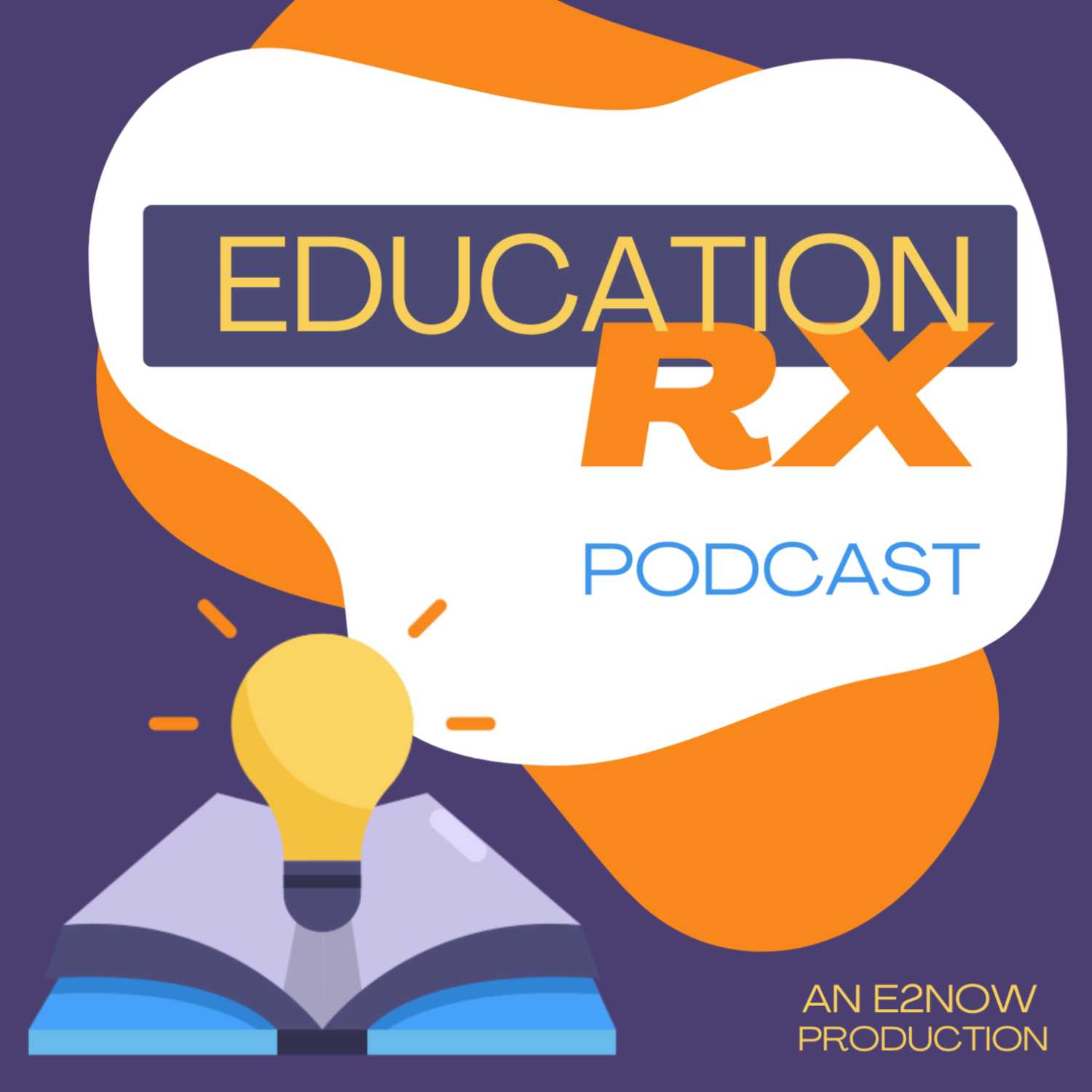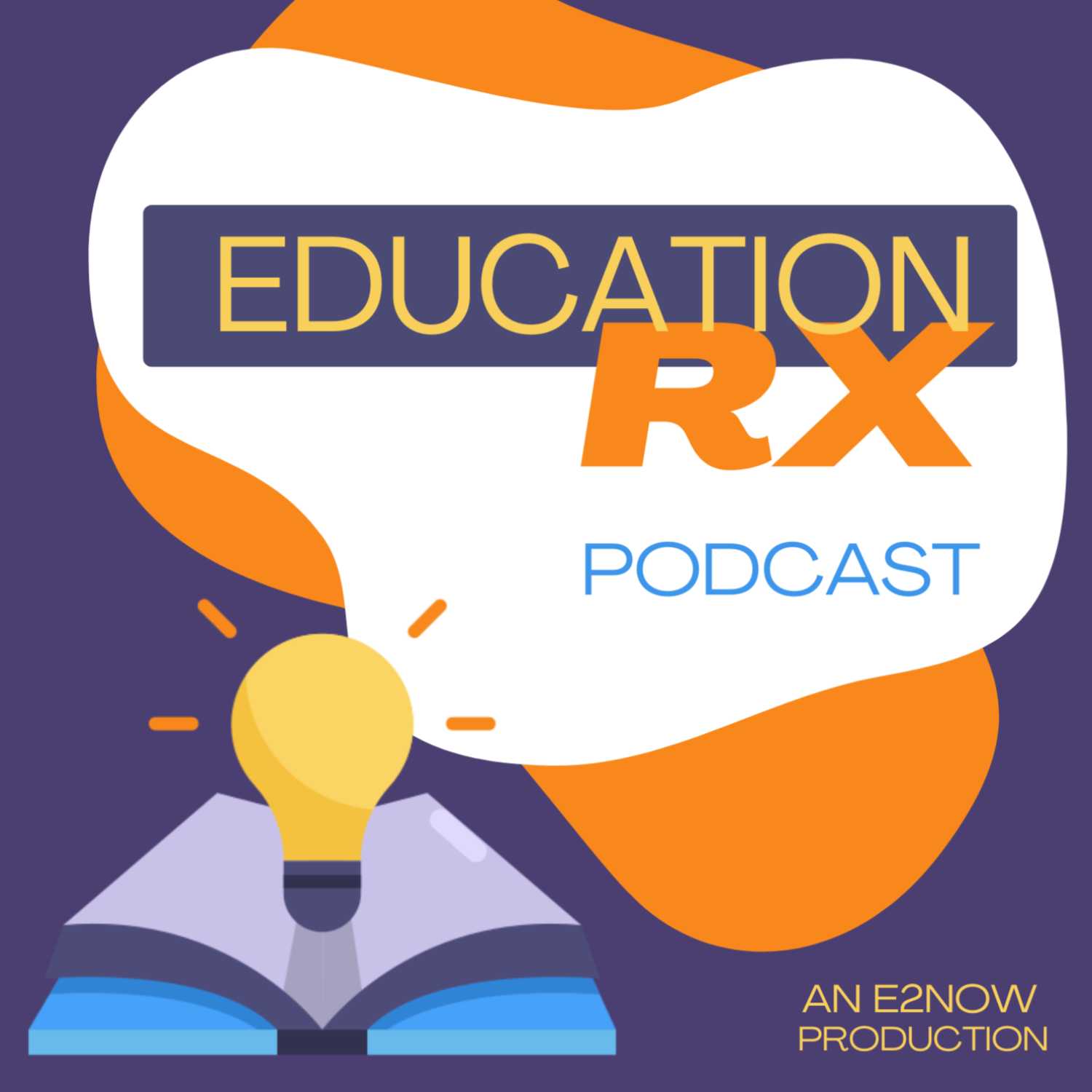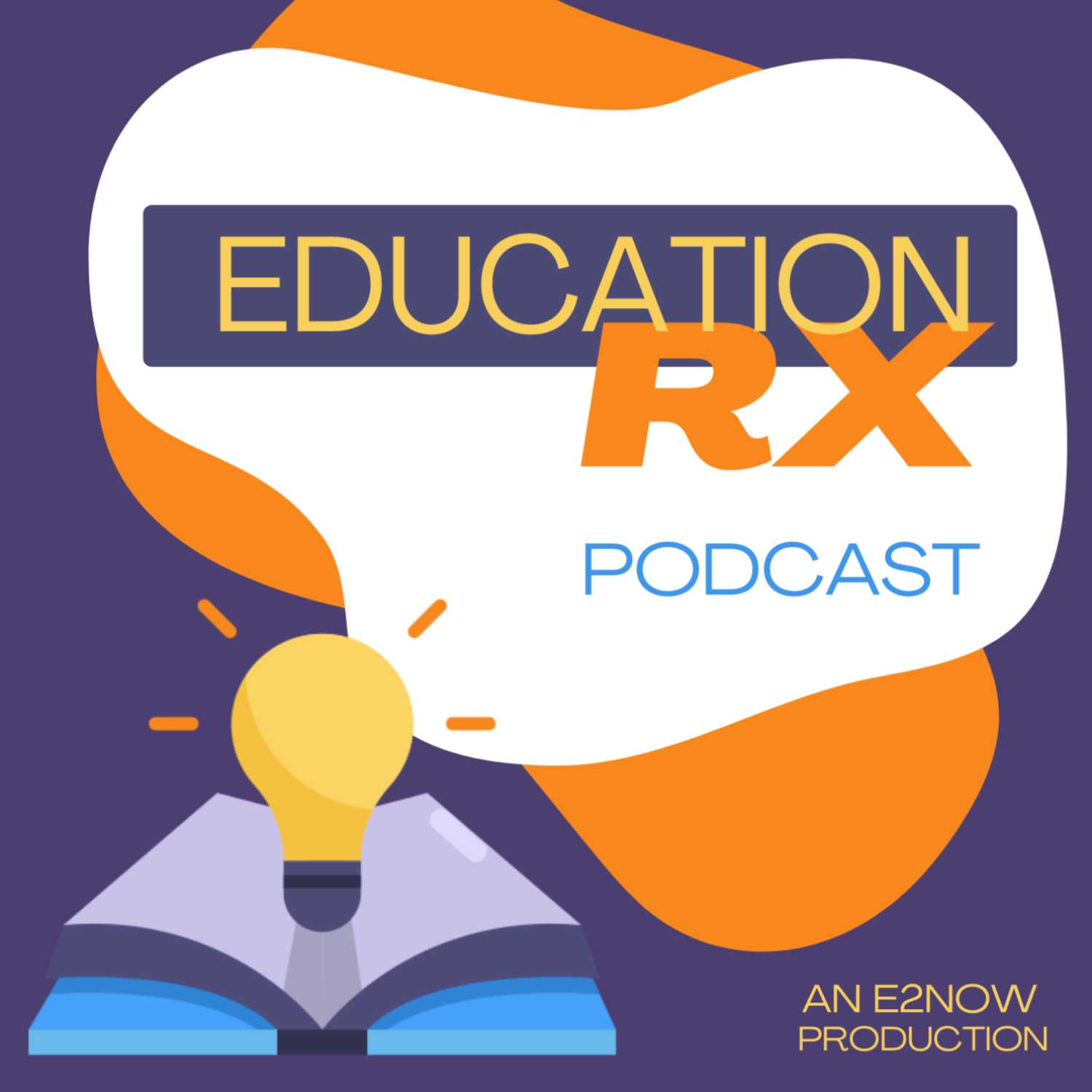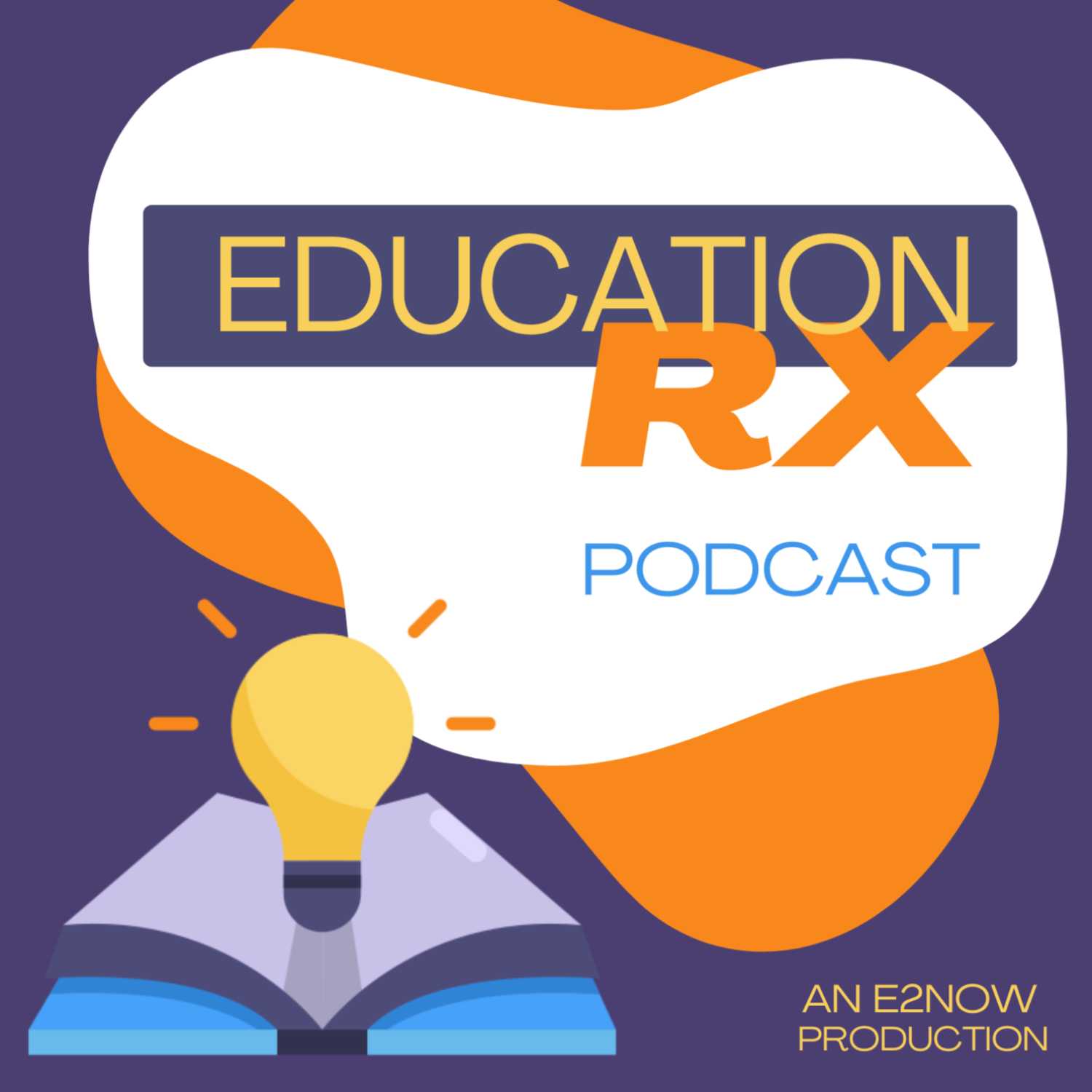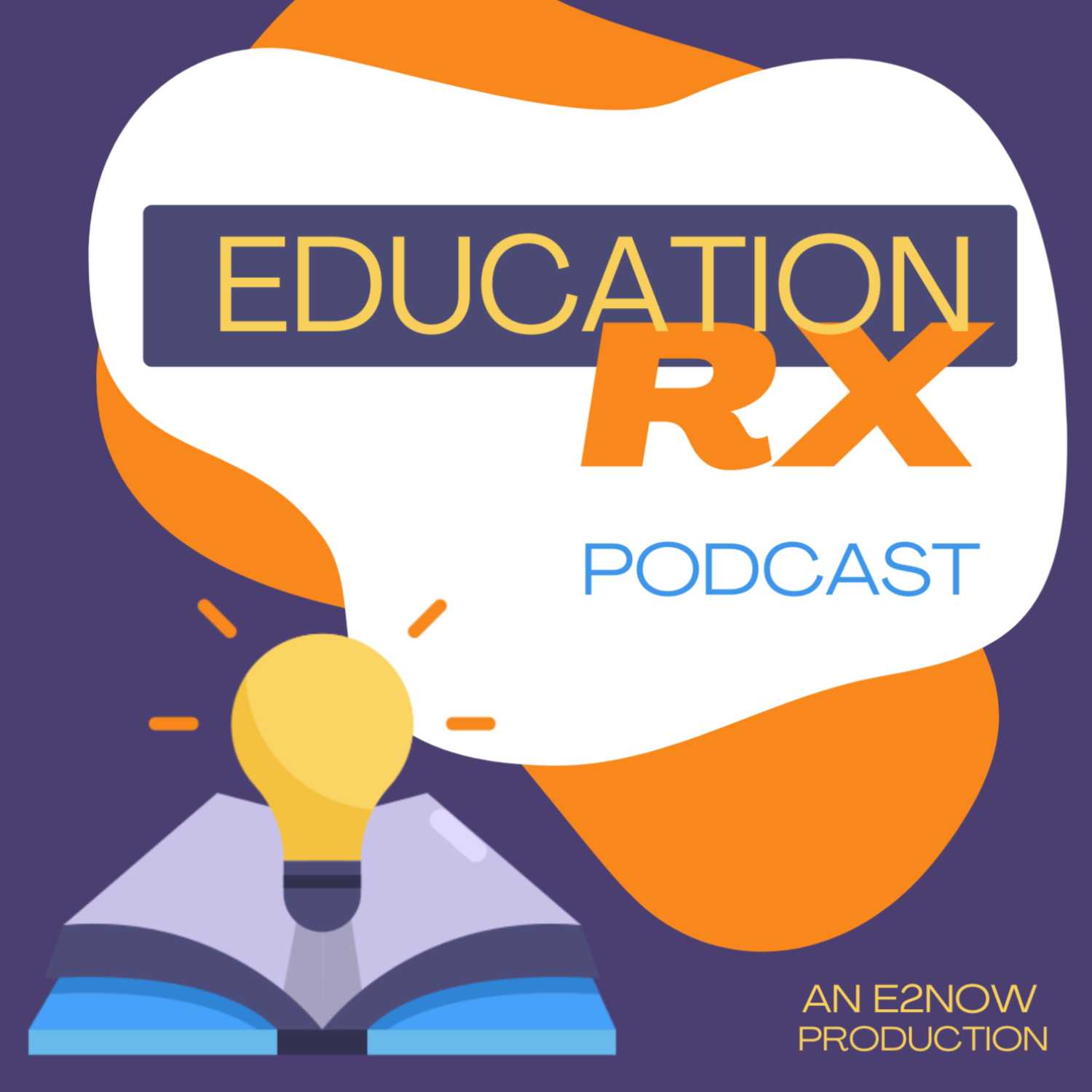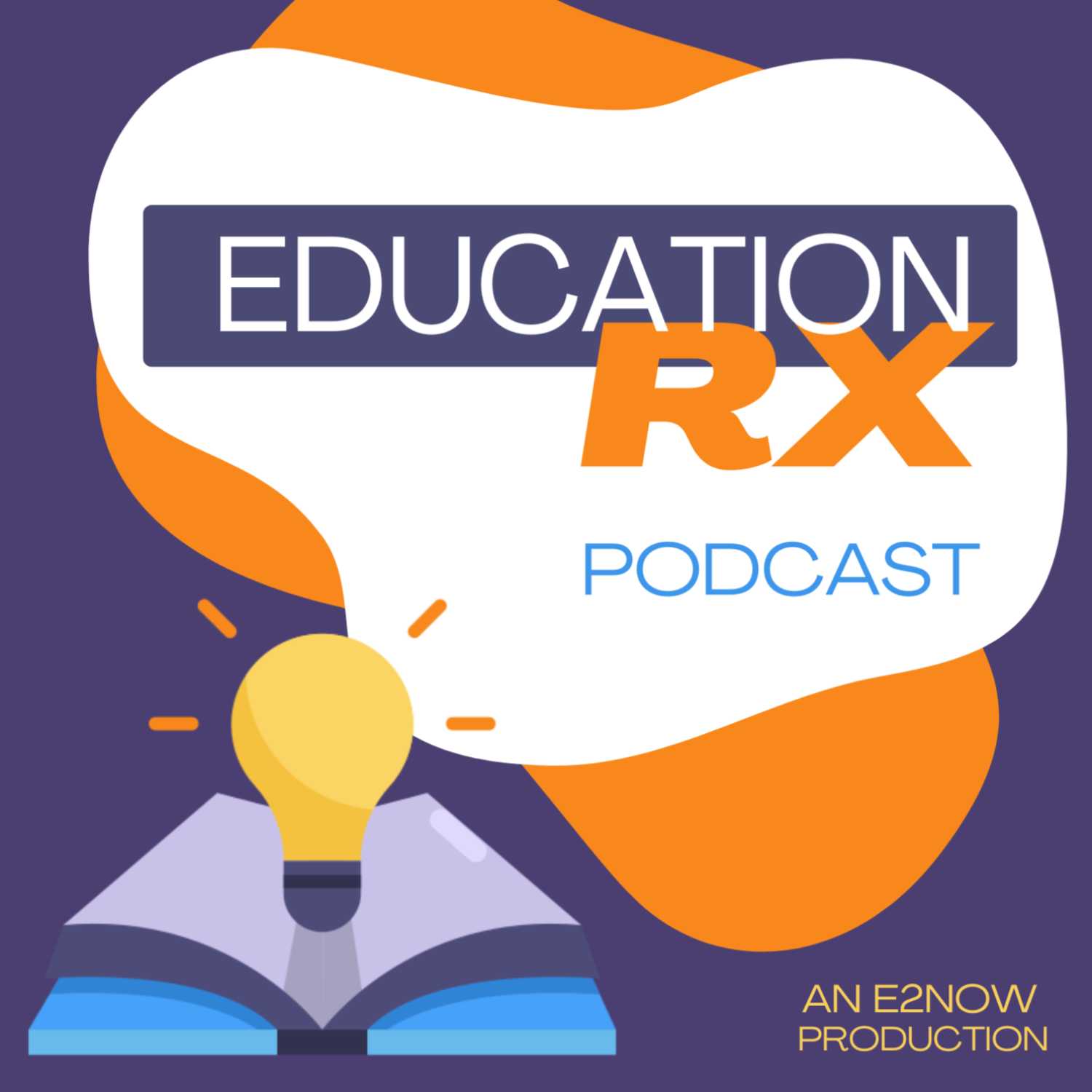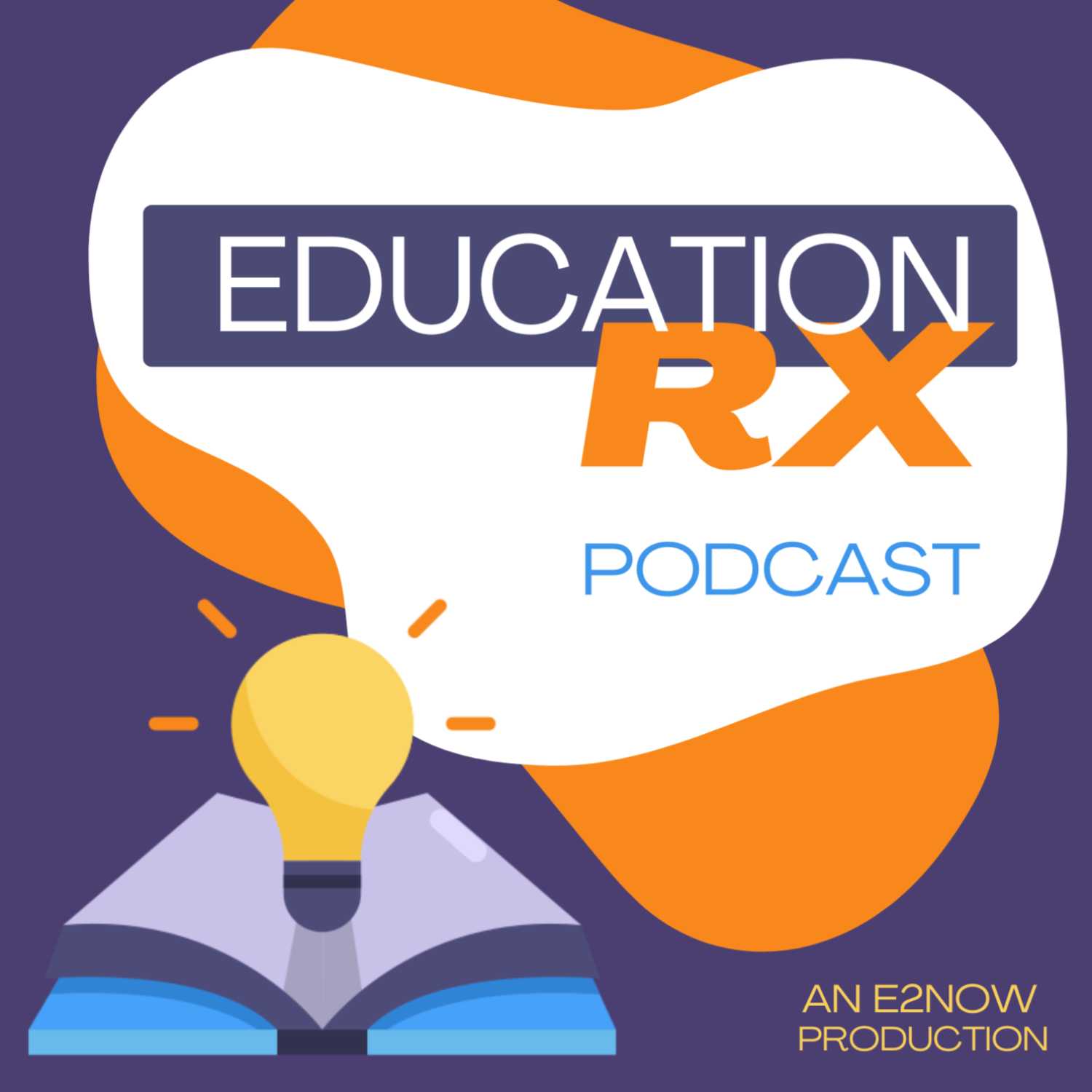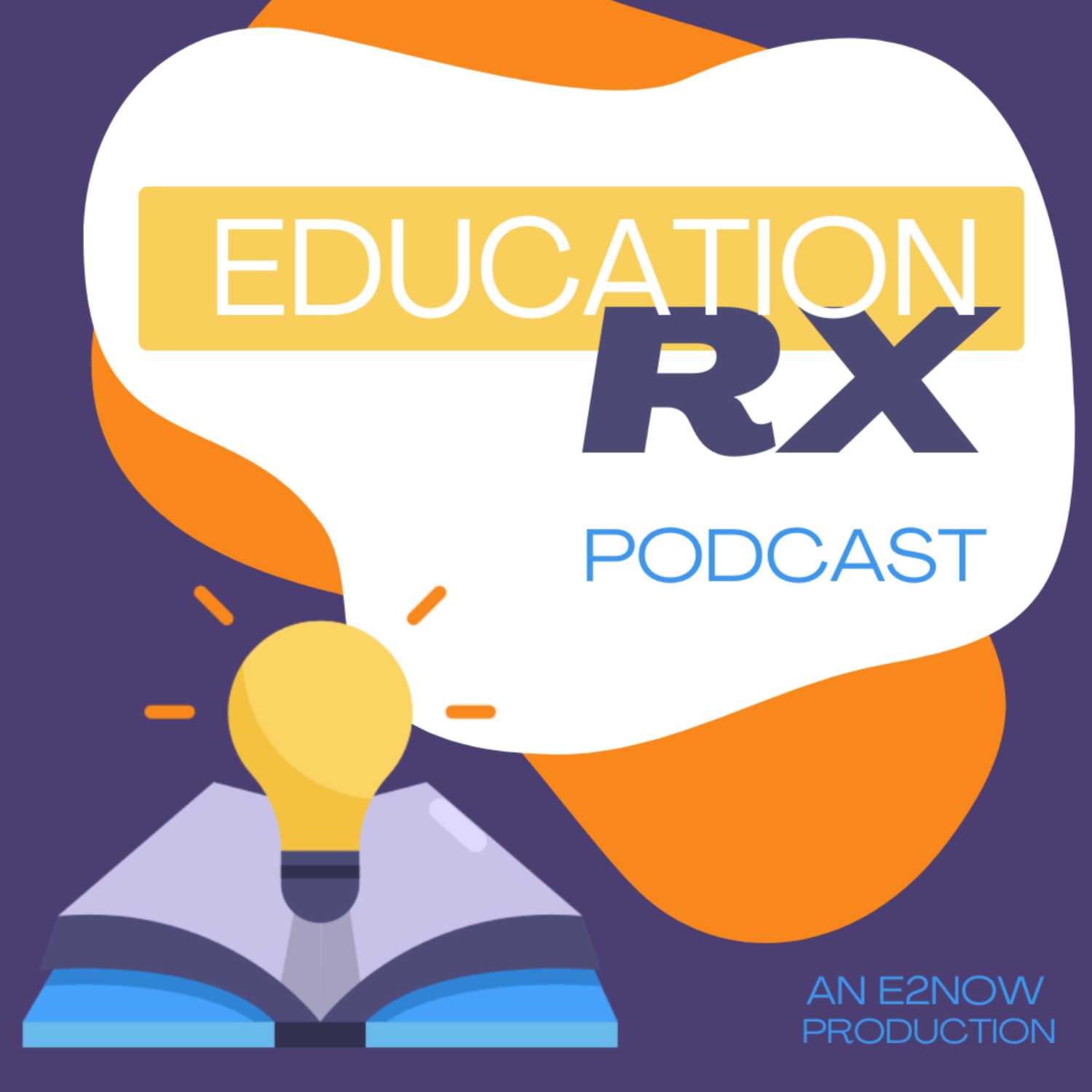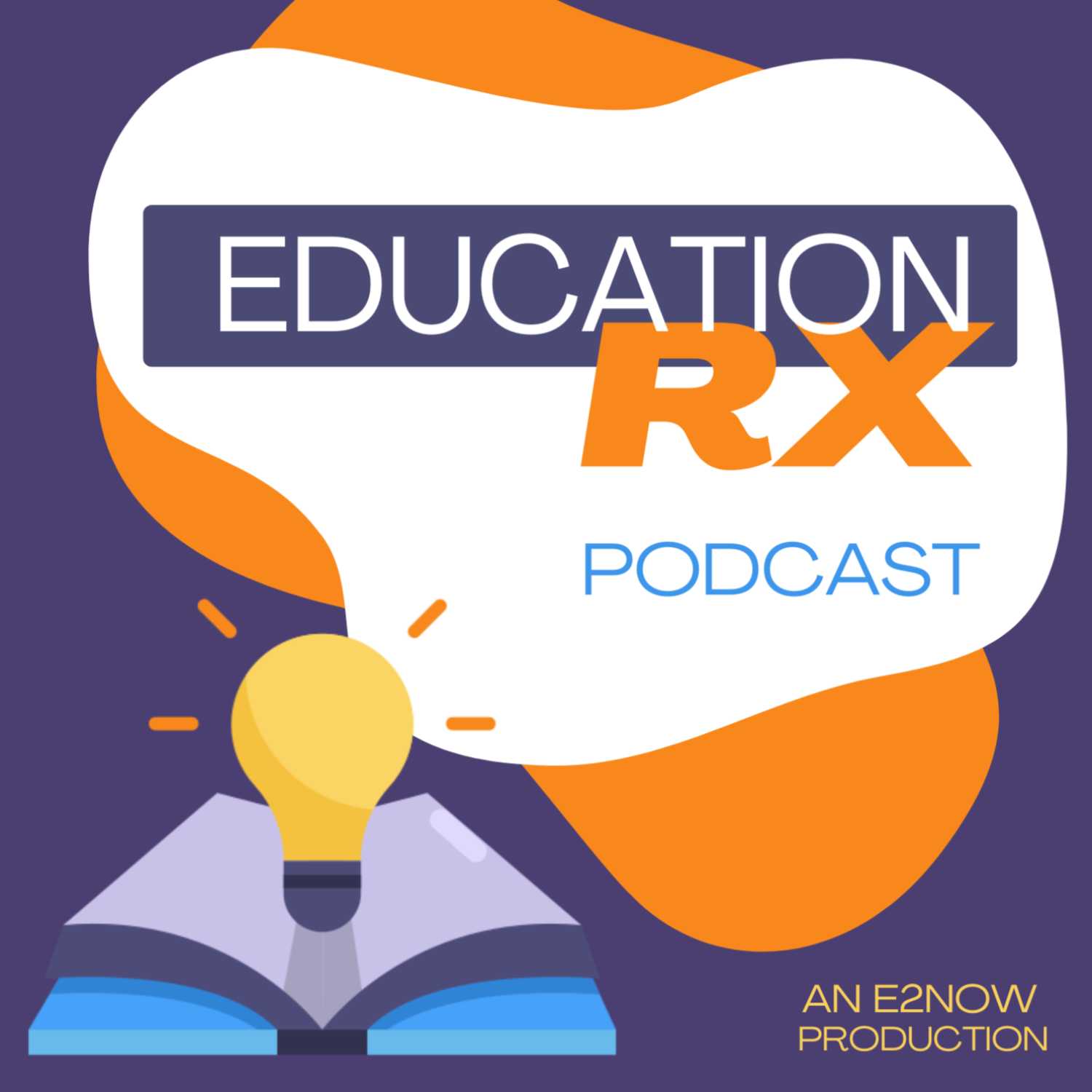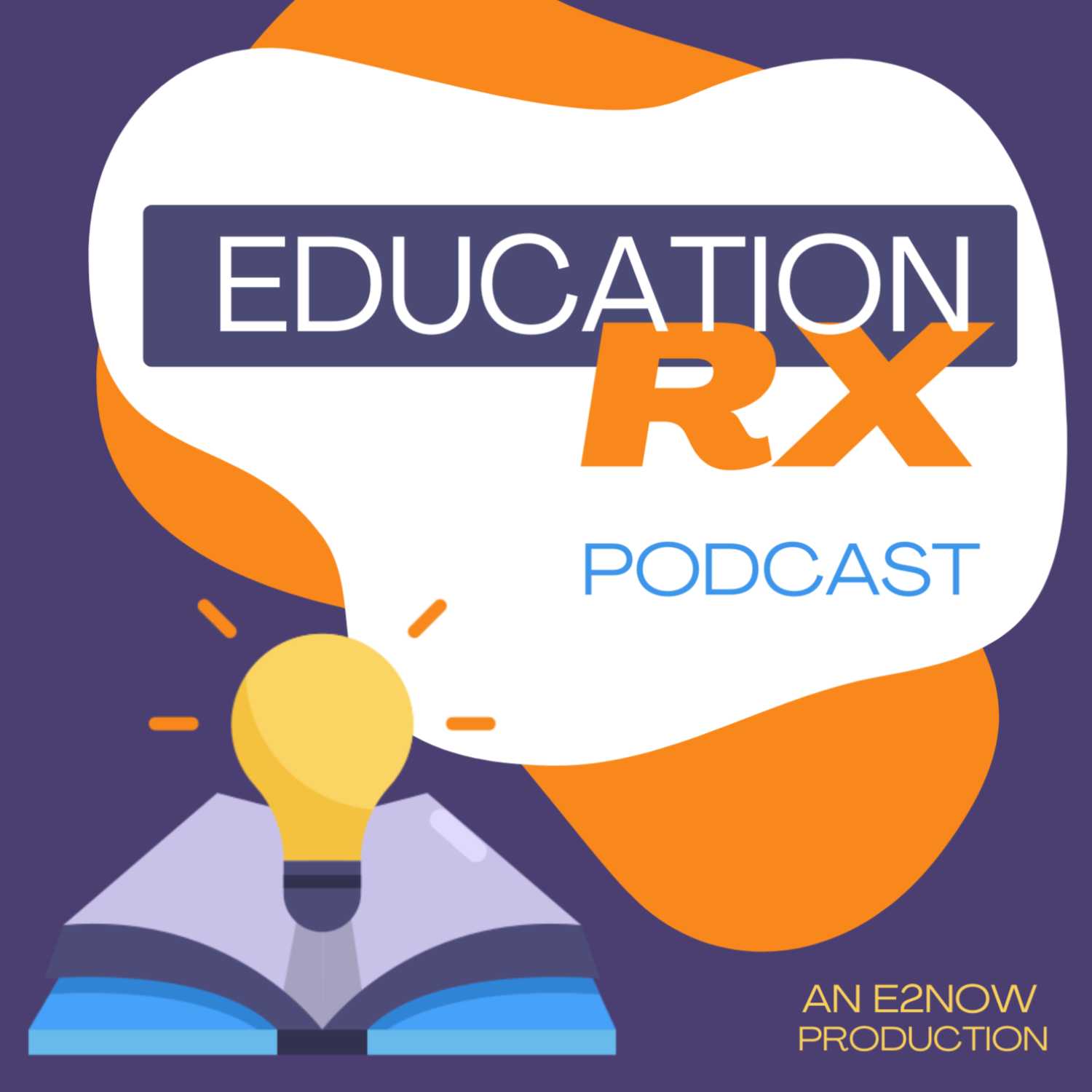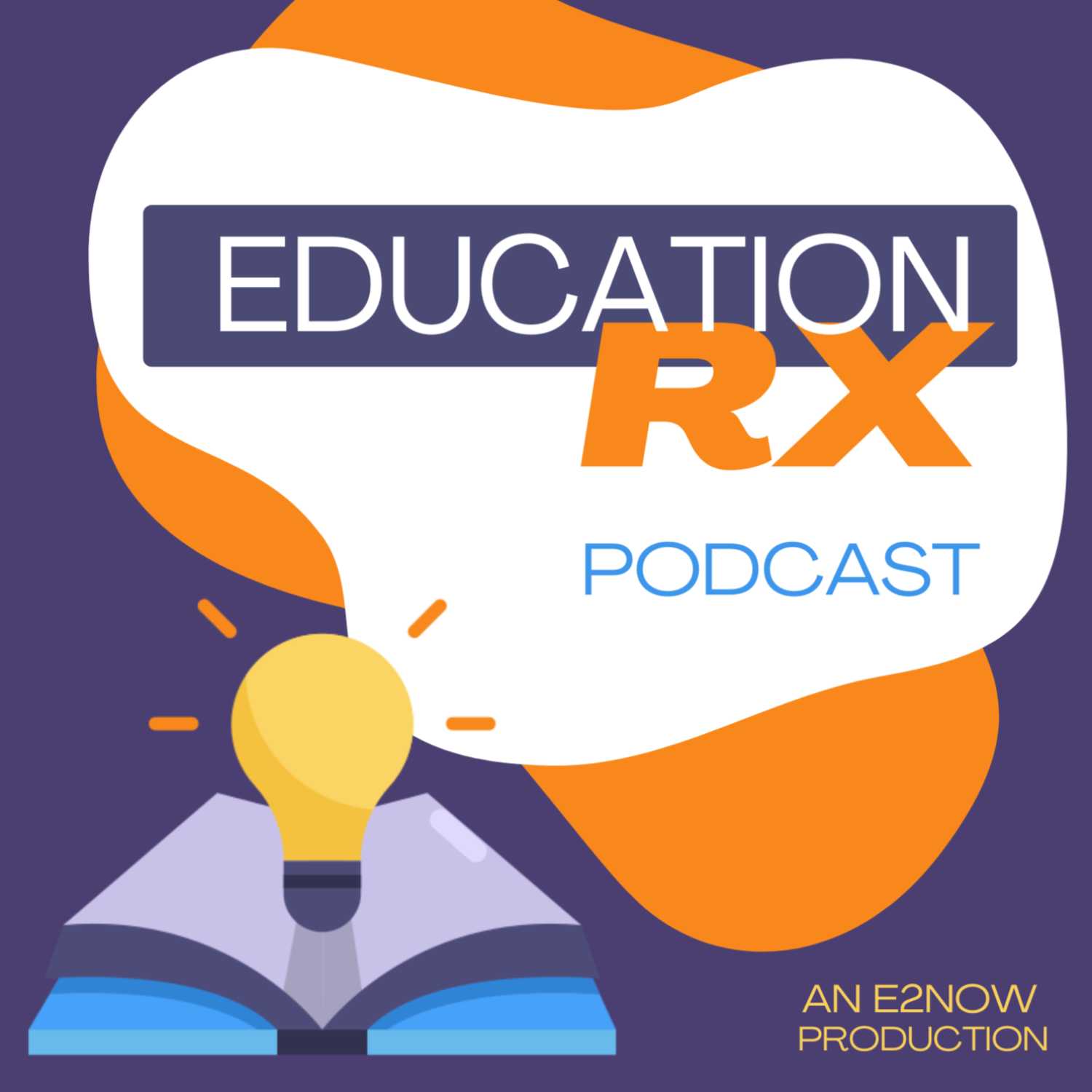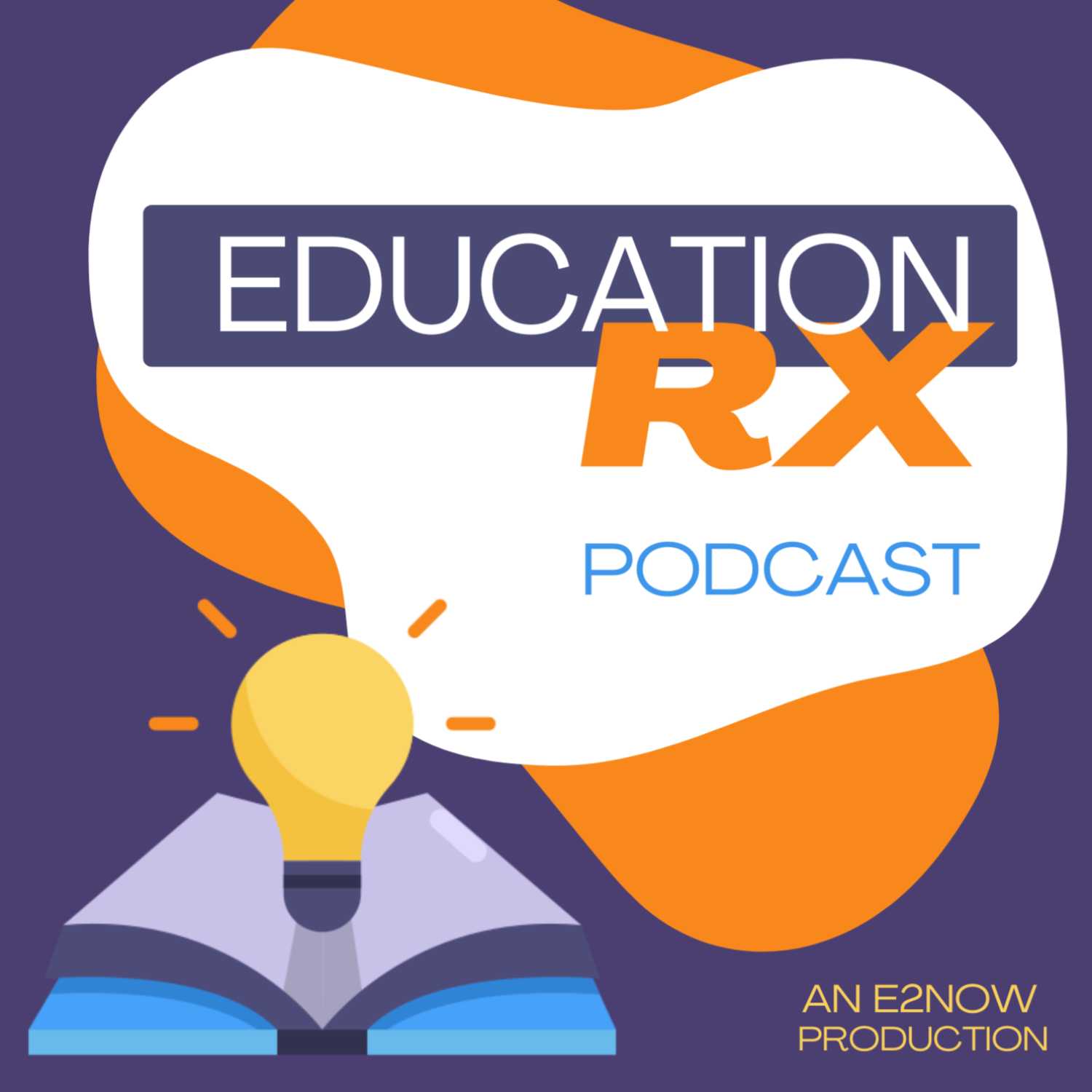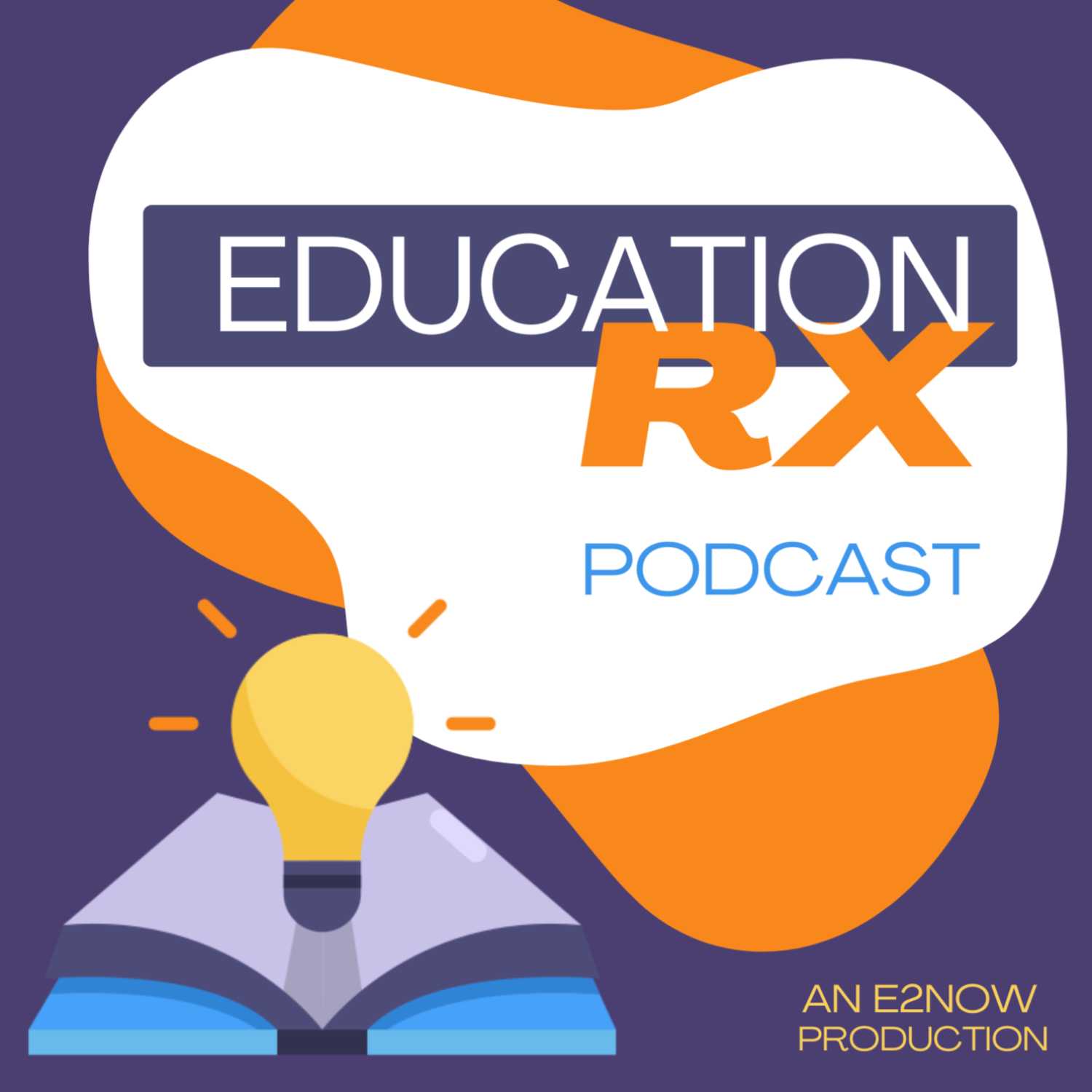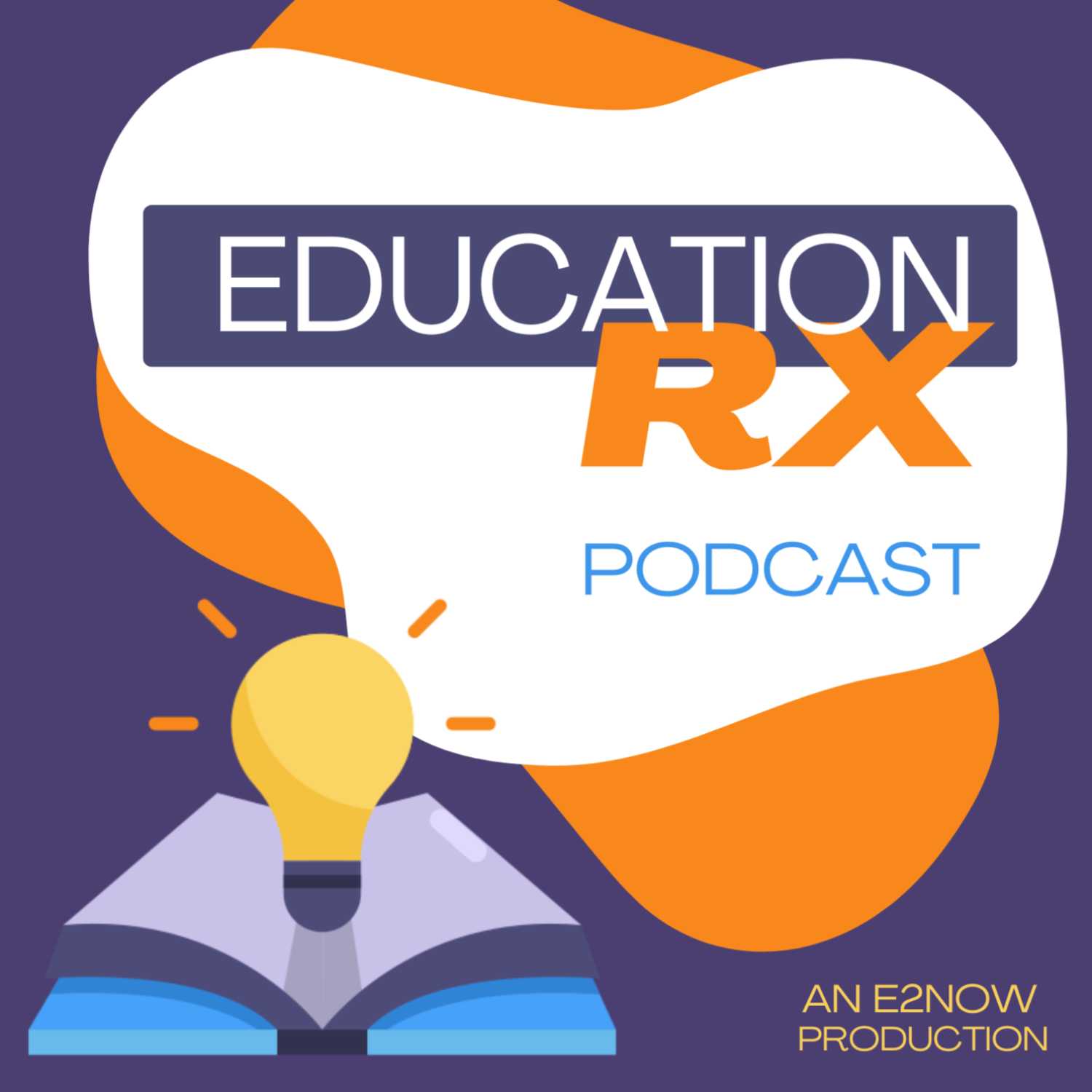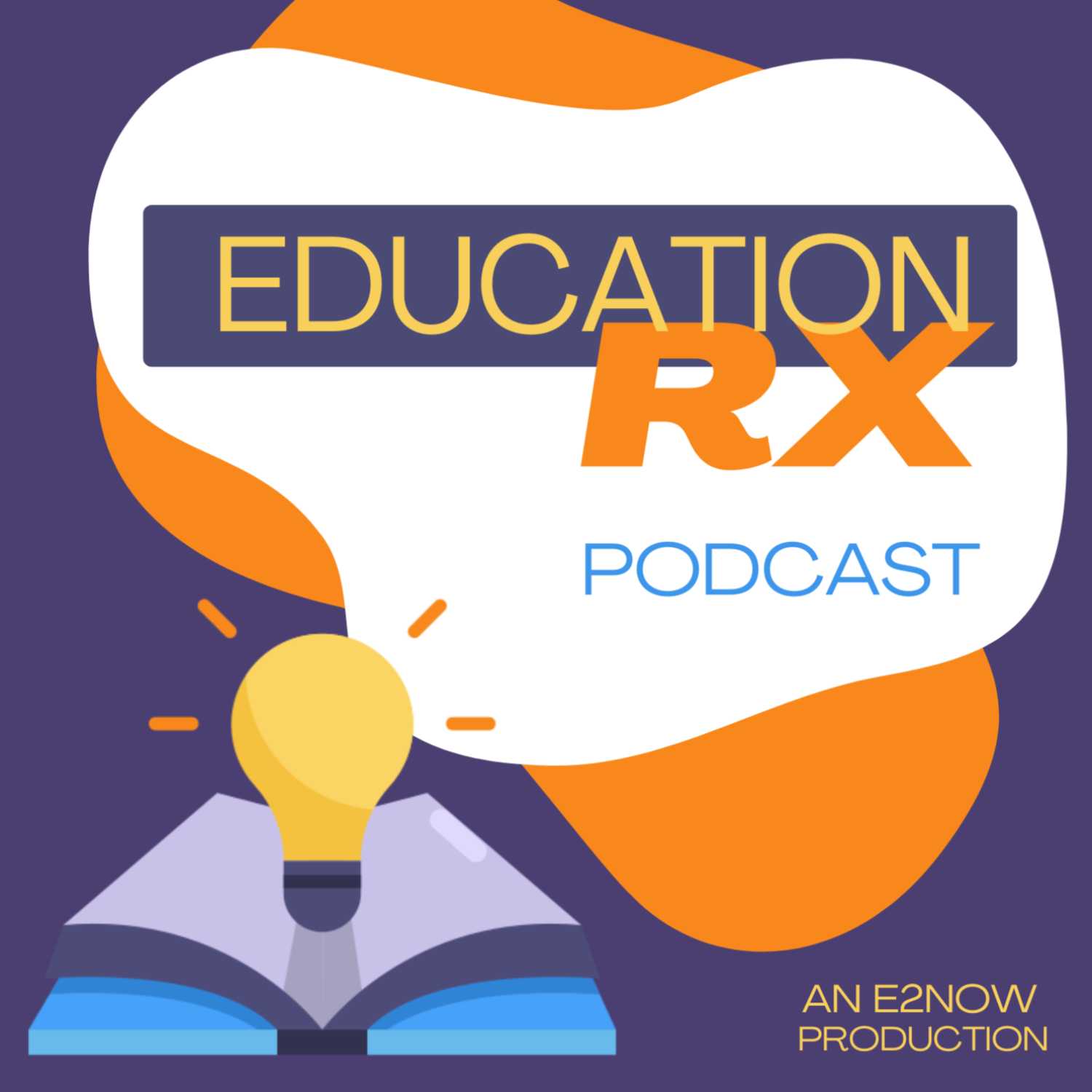Discover Education Rx
Education Rx

Education Rx
Author: Hollye Bronson and Shannon Donnaway
Subscribed: 2Played: 2Subscribe
Share
© Hollye Bronson 2022
Description
Education has reached a tipping point: we cannot use outdated practices and expect students to thrive. Education Rx was born out of a desire to support change in the public education system. Education should be engaging, have real world value, and be equitable for ALL students; no matter race, socio-economic status, or ability level. And, it should be FREE!
We don't have all the answers, but we are searching out experts and real people that hold a piece of the puzzle, and we will be giving them a chance to share their perspective on what is broken. Then we will follow it up with what is WORKING! We want to help start conversations that will help us move towards educational reform that will move our nation's public education system forward.
The students of today are the leaders of tomorrow. Education should be one of the MOST important institutions in our country! We can do better. Join us. Start conversations. WE CAN DO BETTER!
We don't have all the answers, but we are searching out experts and real people that hold a piece of the puzzle, and we will be giving them a chance to share their perspective on what is broken. Then we will follow it up with what is WORKING! We want to help start conversations that will help us move towards educational reform that will move our nation's public education system forward.
The students of today are the leaders of tomorrow. Education should be one of the MOST important institutions in our country! We can do better. Join us. Start conversations. WE CAN DO BETTER!
32 Episodes
Reverse
Hollye sits down with Bored Teachers Comedian Devin Siebold for a light-hearted chat about being an educator and leaving education. Devin and Hollye talk about some of the highs and lows in education. Devin shares his journey moving from education into full-time comedian, public speaker, and podcaster. If you haven't watched "Crying in My Car" on YouTube, click this link and check it out.Listen in...Devin's story is worth a listen!
Hollye and Shannon talk with Eric Robinson, founder of TogetR4success. Eric's program is uniquely designed to create relationships between teachers and families over a 10 week period using games and challenges. This episode highlights the breakdown of trust and relationship between educators and families, and how it is impacting education across the US. Eric has created a program that is focused on the missing link of relationship and how to heal it.Eric's blog: https://togetr4success.blog/Find Eric on LinkedIn: http://www.linkedin.com/in/eric-robinson-842264140Eric's program: https://togetr4success.thinkific.com/bundles/togetr4successSee the program challenges and games: https://togetr4success.thinkific.com/courses/10-week-challenge-workshop-course
Join us as we talk with Ryan Hogan, @inclusivetogether, Ryan is a school psychologist AND the parent of a student with ASD. He knows how impactful it is to understand the system, know how to navigate it, and how to support it in the home. We discuss lingo (RTi, MTSS, IEP, MRD....), the processes you go through to get your student help, and what happens when a student with special needs is struggling with behaviors. Is restorative justice making a difference? Teachers are exhausted and at the end of their rope with student behaviors. Parents are exhausted and don't know what to do. Let's talk turkey and get to the bottom of it!
We continue our interview with Paige Edmonds, functional nutritionist and program director for Dr. Mindy Pelz's agency. This round, we focus in on teachers/educators and how they can fuel their crazy days. Paige offers quick and easy ideas to keep us all on our toes throughout the day. She also shares some of her fool proof ways to be prepared for the week so you stay fueled.
How do you sit in a class and stay focused on a lecture if you just ate a bunch of simple carbs and drank a sugary soda?? The way students eat is directly impacting their ability to engage in academics. But is goes deeper: the way students are eating is directly impacting their mental health, their behavior, AND their long-term health outcomes!It may be hard to swallow the magnitude of how our food is impacting our education system, but we NEED to talk about it! Luckily, we found Paige Edmonds, an amazing functional nutritionist who works with Dr. Mindy Pelz's agency, as well as provides support through her social media, to help make things simple. No, you don't need to empty the pantry and start from scratch. But...you could start with some quick and easy 1st steps to create change.If you have a child who is dealing with ADHD, depression, acne, intense emotions, mood swings, anxiety, depression, or poor testing skills you want to listen to this episode.If you are a person, and you eat food...you WANT to listen to this episode!!This is part 1 of a 2 part series with Paige. This episode focuses on students, how food is impacting their performance, and ways to make changes painlessly.Episode 2 will focus on teachers and adults, how food is impacting THEM, and manageable ways to start shifting their eating so that they can feel better!Check out these resources that Paige shares in the episode:Dr. Mindy Pelz Website. Paige's Instagram Site Education Rx Podcast YouTube channel (watch the full interview!)
Shannon and Hollye talk with Matt Beaudreau about the breakdown of the current public education system. Is changing the system an option? Matt says "no!" So how do we move forward and create a better landscape in education? Make a NEW system! Matt has been, and continues to, build new educational systems through programs such as Apogee Strong (mentorship programs), Acton Academy Private Schools, and now he is working with a team to build more new education programs. How do we begin? Listen in and find out.
Shannon and Hollye talk about the guests and topics in Season 3: Educational Administration. They review some current educational issues, including the systemic issues in Houston's HISD district. Paying teachers based on student test scores...is this the wave of the future for public education teachers? Should it be? Across the country people are making moves to create change: are we going in the right direction? Listen in. Share your thoughts.
Will McCoy talks with Shannon and Hollye about leadership in schools. Walk throughs. Observations. Reviews. Creating a team environment. Building trust between administrators and teachers. Respecting teacher expertise. Getting staff input on professional development options. We ask the tough questions and Will steps up to the plate and answers each and every one of them!Will started his career as a teacher. He moved into a principal role and ultimately a superintendent. He has specialized in being a turnaround principal and superintendent: you will understand why when you hear his insights and approach to each situation. He has authored multiple books (find them here).
Shannon and Hollye talk with Kristin Smith, mother, education advocate, and dedicated school board president in Durango, CO. Sounds nice, but...why would I listen to it? Great question! Because Kristin shares ideas and methodology that WORKS! She talks about how she worked with her board to change leadership, bring students onto the board and mentor them, get a superintendent that was the right fit for their district, and even how their school board is working to bring families and community into a closer relationship with school staff and leadership.We talk about the dilemma of identifying what a district wants to provide to best serve its students vs. what the state mandates will allow. Why "traditional" education models AREN'T working. Innovative learning styles that support student engagement. SEL: what it IS, and what it ISN'T. You will be captivated by Kristin's love for students and her insights into how she was a part of "turning the ship around" in her district.
Dr. Michael Allen joins Hollye and Shannon to discuss school-based administration (aka principals). We talk about why students are going to the office and returning in minutes. Dr. Allen talks about observations and feedback. What is impairing principals from being present and tuned in? How do principals tap into the expertise of teachers and certified staff, create strong team dynamics, and elevate the workflow in their buildings? Dr. Allen's first degree was in sociology, and he uses this lens to shed light on why many schools are experiencing breakdowns and ways to heal them.Check out his book at https://brotherlylovebook.com/
Dr. Doug Fisher looks at educational leadership through the Leader Credibility Model. What does it take for a leader to be credible with their staff? Looking through the teacher's lens is the principal in your building accessible to you? Do you trust them? Are they present when it matters? From an administrator lens what are key ways that you can show up for your staff? Can you give teachers for agency in managing students and learning? Dr. Fisher is more than a skilled educator and leader, he is experienced in finding creative solutions that come from strong research and powerful methods that work. As we dive deep into the challenges in educational administration today, Dr. Fisher takes on hard questions and gives answers that are unexpected. Don't miss this incredible interview!Get more insights and resources from Dr. Fisher at https://www.fisherandfrey.com/
Will McCoy joins Hollye and Shannon to talk about educational administration. This inaugural episode in the Educational Administration series starts at the top! We ask questions that stem from real experiences and frustrations brought to our attention by listeners and educators. How much travel and training for top-level administrators is too much? What level of power do school boards have? How to manage department heads when they are behaving badly. Will candidly addresses these questions (and more) from his years as a superintendent and turnaround superintendent. What are some of the ways he used to stay connected to his staff and create positive outcomes districtwide? Whether you are an educator with a beef against your admin, a family member who is discouraged by the leadership in your district, or an administrator seeking fresh ideas for being amazing...you won't want to miss this great interview!
What an INCREDIBLE 2nd season we have had. We focused on "inclusion", but found several themes rose to the surface consistently across all of our episodes:Questioning of Standardized TestingStudent Led LearningMore Focus on Mastery, Less Focus on a Traditional Grading SystemUsing EdTech to Ensure EVERY Student has Access to LearningUniversal Design as a Foundation in Creating LearningSupporting Students in Identifying What THEY Need to LearnFocusing on Equity: across cultures, socio-economic groups, and physical/cognitive ability levelsThis season we had absolutely OUTSTANDING guest: Episode 1: Mike Marrota, Karen Janowski, Chris Bugaj (Authors of Inclusive Learning 365)Episode 2: Dr. Andrew Ho of Harvard University Graduate School of EducationEpisode 3: Dr. Doug Fisher of SDSU and Learning by DesignEpisode 4: Dr. Pedro Noguera of USC, Distinguished Professor of EducationEpisode 5: James Robinson Indiana University Institute on Disability and CommunityEpisode 6: Reagan Rogers and Will McCoy of Invo HealthcareEpisode 7: Sam Kary Founder and CEO of New EdTech Classroom & Next Gen TeacherEpisode 8: Dr. Pasi Sahlberg author and educational reform expertJoin hosts Hollye Bronson and Shannon Donnaway, along with their producer/audio engineer supreme Kieran Bronson-Doherty, and executive producer Courtney Hamm, as they review the episodes looking at key takeaways, highlights, and bloopers from Season 2.Find out WHAT'S NEXT for the podcast.Find us and Subscribe to our new YouTube Channel @educationrxpodcast!
Dr. Pasi Sahlberg, lifelong educator, academic, policy maker, and author, hails from Finland and has been a driving force in educational reform in his home country and throughout the world. He is currently living in Melbourne, Australia and working for Southern Cross University. Dr. Sahlbery has worked in countries around the world helping to support universities in revamping their education programs in an effort to create highly effective educators that can go into public education and raise up the next generation. In our interview with Dr. Sahlberg, we talk about WHY teachers in the US have lost influence and power. Why has this NOT happened in Finland? With negative, disruptive behaviors on the rise in classrooms across America, how do we find the underlying causes and correct those? Becoming a teacher/educator in Finland is one of the top 3 choices: WHY? How does teaching in Finland look different than in the US? How has Finland created an education system based on full inclusion and student engagement? Why are standardized tests and teaching to those standards NOT working in the US? Should we shift gears and begin to see schools and education in a business model?Dr. Sahlberg is candid, sincere, and goes right to the heart of how we can raise good humans who are happy, knowledgeable, and succeed!Dr. Pasi Sahlberg: find his AMAZING books and resources here!
Sam Kary is the founder and CEO of The EdTech Classroom and Next Generation Teacher talks to us about the reality of student led, universal design, inclusive learning. Not "techy?" Not a problem! Sam give quick and easy ways to start a shift in your classroom. Learn how to get your students involved in self reflection, real time feedback to guide lessons, and ....STOP giving direct instruction!? That's right. Sam shares how he made that one big change--no more standing in front of the class giving information--and how it revolutionized student engagement.We talk about standardized testing, getting rid of letter grades to focus on mastery, and more next generation concepts that will stop unwanted behaviors in your classroom because your students are too busy learning!I (Hollye) have been a huge fan and follower of Sam's for more than 5 years. His no nonsense, easy to follow guidance helped me create inclusive opportunities with every student I worked with. AND...the learning was FUN! Universal Design Learning (UDL) goes beyond a few modifications or accessibility features. Sam gives us a schema for UDL that will help you shift how you view student interaction. Listen in and get inspired!
Will McCoy and Reagan Rogers of Invo Healthcare join us on this episode to talk about ways education can "Turn it Around." We talk with them about the behavioral crisis many educators are experiencing with students, and ways to address the challenges. Reagan shares how her program and team collaborate with educators to create systems that WORK! We talk about the trauma and emotional challenges educators, themselves, have been having to work through. Add classroom behavioral issues that are becoming common place in schools across America: educators are exasperated! We discuss ideas and resources to give educators ways to get help.Will has spent years being a "turn around" administrators for schools and districts in Southern California. He shares with us some of his techniques that educators can put into place to help make meaningful changes in their classrooms, buildings, and districts. Moving away from frustration and towards hope by building relationships through listening, educational administrators can help turn around the toxic environments that are causing classroom educators to throw their hands up and walk away.This episode is full of heart and hope for every educational player! (parents, too!
Dr. James Robinson from Indiana University’s Institute on Disability, and former full time educator/special education teacher, joins us to talk about inclusion. He shares some of the research that his agency has done on the use of inclusive practices in public education. They have consistently found that the implementation of these practices results in improved test scores and graduation rates: these outcomes are not just for students with IEPs/special education needs, but are true for ALL students! Dr. Robinson shares some of the key instructional strategies that he and his colleagues share and coach educators on using in their classrooms. He shares how some schools implement these practices school wide, not just in classrooms. What that looks like and the value of making these shifts. He provides resources and practices that educators can explore, even implement tomorrow.These practices WORK! Listen in to hear more….Here are some links that Dr. Robinson touched on:Marilyn Friend: Resources on Inclusive PracticesMarilyn Friend BookIndiana University Institute on Disability and CommunityLongitudinal Study on Inclusion Handout
Dr. Pedro Noguera talks with Hollye and Shannon about inclusion from the lens of meeting every student where they are at. Teaching students the way they learn, not making students learn the way you teach. He reinforces the importance of relationship between educators and students. We, as educators, need to start by honoring the cultures of our students–their language, their traditions, their values are precious. We can help students find motivation and enthusiasm for learning through providing opportunities for creativity and a sense of success when they are engaging in problem solving. Moving towards meaningful ways of assessing learning: performance based demonstrations of knowledge and skill, like many schools in New York are doing now. Dr. Noguera provides consultation to many Public Education Systems in states including New Mexico and Colorado. He shares some progressive programs that California, New Hampshire, and New York State are implementing with powerful outcomes. He gives straight answers on topics including standardized testing, ways educators can create humane and nurturing environments in the classroom, and ideas for getting the “conditions” right for learning in every classroom. Public education SHOULD be the very best quality for EVERY student! How do we, as Americans, find inroads to elevating our educators and students to achieve this? Dr. Noguera shares some powerful ideas that can move us forward.Here are some links that Dr. Noguera touched on:NY Performance Based Consortium Amy Biehl High SchoolACE High School
Dr. Fisher shares methods for creating student driven learning that WORKS!6 Steps in the Progression of Learning for Students1. Students identify and know their current level of performance2. Students identify where they are going next with their learning3. Teachers support students in exploring a range of tools, and students select the tools that WORK for them4. Students want and ASK for feedback. Teachers–model this by asking students for their feedback as well5. Students recognize their own learning achievements6. Students start to teach othersUsing “gaming” methods, like ensuring that students start with some level of success, THEN create challenge. Provide instant feedback on what they are doing: wins and where they need to make shifts. Make learning discoverable and engaging!Dr. Fisher helps educators to develop student driven learning, support literacy, and create accelerated learning opportunities.He shares data that tells us that there’s HOPE: within the US, there are trends that are showing us that we ARE making gains!! We are beginning to close the gap on“unfinished” (not “lost”) learning from CoVid. Educators–you are making powerful inroads for inclusive, engaging learning. Own it!Dr. Fisher’s Website for LearningReading RopeThe Cognitive Challenges of Effective Teaching
The National Assessment of Educational Progress, otherwise known as the Nation’s Report Card, was first given in 1969 with the purpose of measuring the educational achievement and progress of the nation's students at established grades and ages in relation to the content of NAEP frameworks. Every two years, a sampling of schools across the nation are selected for testing: students are chosen at random to participate in NAEP. Every student has the same chance of being chosen—regardless of race/ethnicity, socioeconomic status, disability, status as an English learner, or any other factors. (Beginning in 1990, these tests were made voluntary, and parents can opt their student(s) out if they do not want them to participate.) Historically, all 50 states, and the District of Columbia and the Department of Defense Education Activity, participate in this testing. Students in grades 4, 8 and 12 are randomly selected to participate in testing in the areas of civics, economics, geography, mathematics, music and visual arts, reading, science, technology and engineering literacy, U.S. history, and writing. Student performance is reported on National Assessment of Educational Progress (NAEP) scales, which run 0–300 (for most subjects) or 0–500 (mathematics and reading only). The focus of testing is on reading, mathematics, and (12th grade) science.Our country saw trends of math and science scores declining in the 1970’s, then rising during the 1980’s and 1990’s. In the early 2000’s, limited growth was seen, and in the 2010’s we appeared to plateau. In 2020, NAEP testing was just beginning when CoVid hit, and the testing was put on hold. In 2022 testing resumed, with shocking scores being released in October 2022. These scores demonstrated that not was there a trend of decline in scores, but on average students had lost between 2 and 9 months worth of learning! This may not sound significant: 2 months? Well, in 2 months my student will catch up. WRONG! Learning continued to move forward leaving students who were behind getting further and further behind, not catching up. The scores that came in October 2022 demonstrated catastrophic declines.This episode Dr. Andrew Ho, professor at the Harvard Graduate School of Education, and psychometrician, joins us to discuss NAEP scores and what they actually mean! Dr. Ho has served on the governing boards for the National Council on Measurement in Education and the National Assessment of Educational Progress. His research is known for his research documenting the misuse of proficiency-based statistics in state and federal policy analysis. He explains WHO is measuring WHAT and WHY when our nation puts “standardized testing” into place.Does this episode sound “heavy” and boring? IT’S NOT!! Dr. Ho takes this dry information and brings it into perspective with real world understanding of why we all need to know about our Nation’s report card, and explains what is driving so much expensive and time consuming testing in our schools.Join us for an informative and meaningful look at where our nation’s students are currently at, and ways we can begin to move forward!Links:https://www.gse.harvard.edu/faculty/andrew-ho https://nces.ed.gov/nationsreportcardhttps://edopportunity.org/


